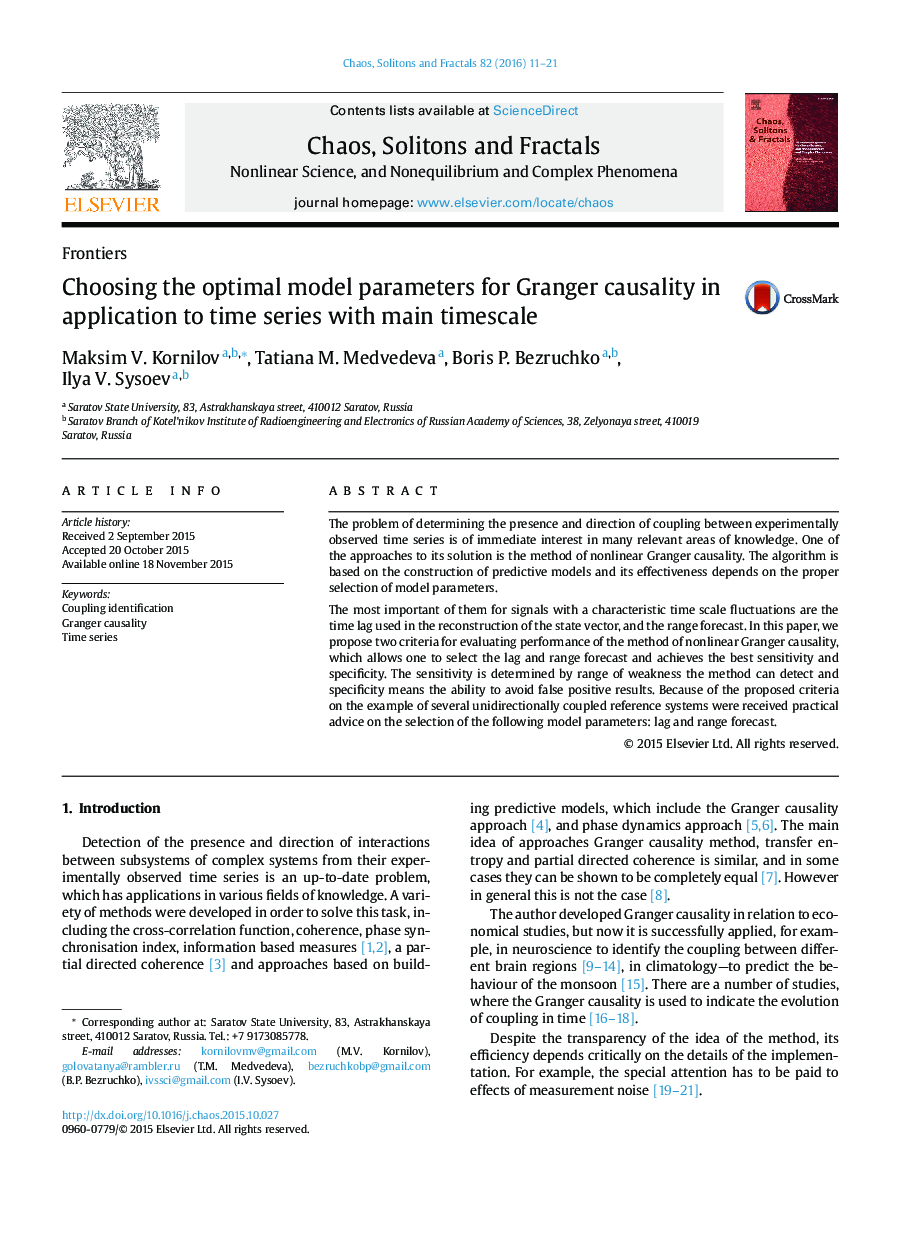| Article ID | Journal | Published Year | Pages | File Type |
|---|---|---|---|---|
| 1888389 | Chaos, Solitons & Fractals | 2016 | 11 Pages |
•Two new criteria are proposed to examine Granger causality approach efficiency.•Different approximating functions are tested for model construction.•Dependency of method efficiency on Lyapunov exponent of driven system is studied.•Recommendations are formulated for optimal choice of method parameters.
The problem of determining the presence and direction of coupling between experimentally observed time series is of immediate interest in many relevant areas of knowledge. One of the approaches to its solution is the method of nonlinear Granger causality. The algorithm is based on the construction of predictive models and its effectiveness depends on the proper selection of model parameters.The most important of them for signals with a characteristic time scale fluctuations are the time lag used in the reconstruction of the state vector, and the range forecast. In this paper, we propose two criteria for evaluating performance of the method of nonlinear Granger causality, which allows one to select the lag and range forecast and achieves the best sensitivity and specificity. The sensitivity is determined by range of weakness the method can detect and specificity means the ability to avoid false positive results. Because of the proposed criteria on the example of several unidirectionally coupled reference systems were received practical advice on the selection of the following model parameters: lag and range forecast.
